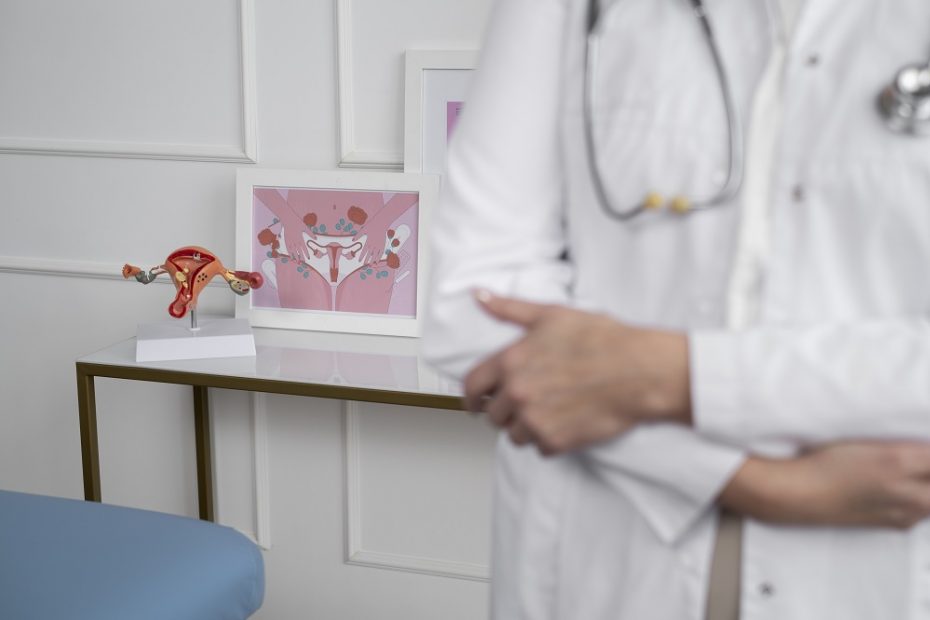The uterus is a remarkable organ designed specifically for reproduction, with its inner lining, called the endometrium, playing a crucial role in pregnancy. Each month, the endometrium thickens in preparation for a potential pregnancy, creating the optimal environment for a fertilized egg to implant and develop. This intricate process is essential for successful conception and healthy pregnancy outcomes, particularly when endometriosis and fertility concerns arise.
What is Endometriosis and its Causes?
Endometriosis is a complex gynecological condition where tissue similar to the endometrium grows outside the uterus in locations where it doesn’t belong. These misplaced endometrial implants can develop on the ovaries, fallopian tubes, pelvic lining, and sometimes even spread to other areas of the body. Unlike the normal endometrial tissue inside the uterus that sheds during menstruation, these external growths have no way to exit the body, leading to inflammation, scarring, and the formation of painful adhesions.
While the exact cause of endometriosis remains unclear, some of the common reasons include the following:
- Genetic predisposition – Family history increases risk
- Immune system dysfunction – Impaired ability to recognize and destroy misplaced tissue
- Hormonal imbalances – Elevated estrogen levels
- Surgical procedures – May inadvertently transplant endometrial tissue to other areas.
How Does Endometriosis Affect Pregnancy?
Endometriosis can significantly impact fertility through multiple mechanisms. Conception becomes more challenging for many women due to this complex condition. As per the endometriosis evaluation, the disease affects pregnancy potential in several key ways:
Physical Obstructions
Scar tissue and adhesions develop as a result of endometriosis. These formations can block the fallopian tubes completely. When tubes are blocked, sperm cannot reach the egg, and fertilized embryos cannot travel to the uterus. Additionally, large endometriomas (blood-filled cysts) form on the ovaries. These cysts displace healthy tissue and disrupt normal egg production and release.
Hormonal Disruption
The condition frequently leads to excess estrogen production. Progesterone resistance also develops, creating significant hormonal imbalances. These disruptions interfere with:
- Ovulation timing and quality
- Egg development and maturation
- Uterine lining preparation for implantation
Inflammatory Environment
Chronic inflammation spreads throughout the reproductive system because of endometriosis. This creates a hostile environment for sperm, eggs, and embryos. The inflammation damages sperm function, reduces egg quality, and interferes with the delicate implantation process.
Implantation Challenges
Inflammatory substances produced by endometriosis lesions affect the uterine lining directly. Even when healthy embryos are present, the lining becomes less receptive to implantation. Understanding the complex relationship between endometriosis and fertility is crucial for developing effective treatment strategies.
Despite these challenges, many women with endometriosis do achieve successful pregnancies with appropriate treatment and support from a qualified fertility specialist.
Options Available for Getting Pregnant with Endometriosis
Fortunately, several effective treatment options exist to help women with endometriosis achieve pregnancy. At the Center for Endometriosis and Fertility, we offer modern reproductive medicine solutions that provide hope through various approaches:
Surgical Treatment
Laparoscopic excision surgery often serves as the first-line treatment for endometriosis-related infertility. This minimally invasive procedure completely removes endometriosis lesions, scar tissue, and adhesions. Healthy reproductive organs remain preserved throughout the process.
Studies demonstrate that proper excision surgery can significantly improve natural conception rates. It also enhances the success of assisted reproductive techniques. Our fertility specialist will determine if surgery is appropriate based on your endometriosis evaluation results, ensuring you receive the most effective treatment approach.
Assisted Reproductive Technologies (ART)
Intrauterine Insemination (IUI): Women with mild endometriosis may find success with IUI. This treatment is combined with ovulation-stimulating medications for better results. IUI bypasses some of the challenges created by endometriosis in the reproductive tract. We carefully assess each patient’s condition to determine if IUI is the right starting point for their fertility journey.
In Vitro Fertilization (IVF): For moderate to severe endometriosis, IVF often proves most successful. The process retrieves eggs directly from the ovaries. Fertilization occurs in a controlled laboratory environment. IVF bypasses many obstacles created by endometriosis, including:
- Blocked fallopian tubes
- Hostile pelvic environments
- Sperm and egg interaction problems
Your fertility specialist will assess how endometriosis and fertility interact in your specific case to recommend the most appropriate ART approach.
We Help You Achieve Your Dream of Parenthood
While endometriosis can make the journey to pregnancy more complex, advances in surgical techniques and reproductive technologies continue to improve outcomes. Many women with endometriosis successfully achieve their dreams of parenthood with the right combination of treatments and support. The complex relationship between endometriosis and fertility continues to be better understood through ongoing research and clinical advances.
Remember, every woman’s situation is unique, and what works for one person may not be the best approach for another. At the Center for Endometriosis and Fertility, we understand that a detailed endometriosis evaluation is the first step toward understanding your individual needs. With our proper evaluation, treatment, and ongoing support, pregnancy with endometriosis is not only possible but achievable for many women. We’re here to guide you every step of the way toward achieving your dream of parenthood.
